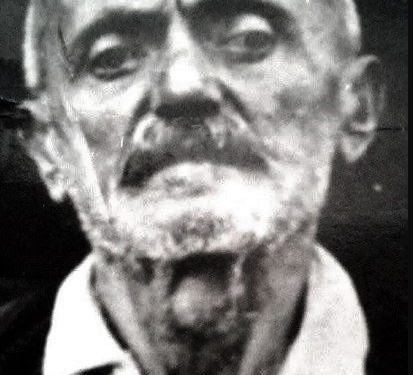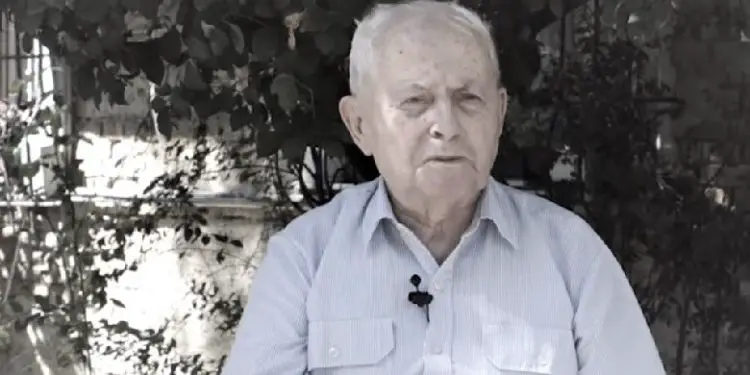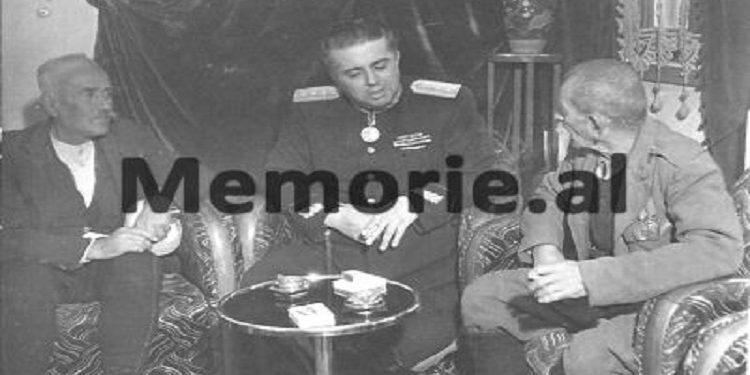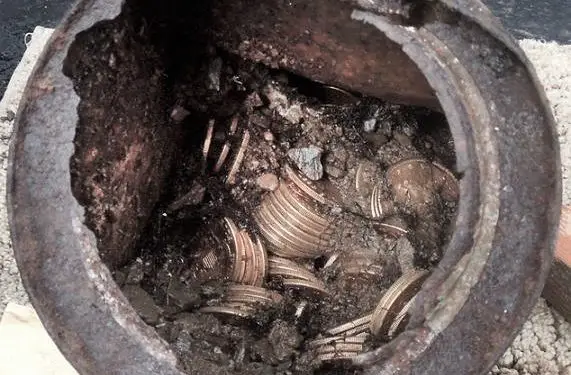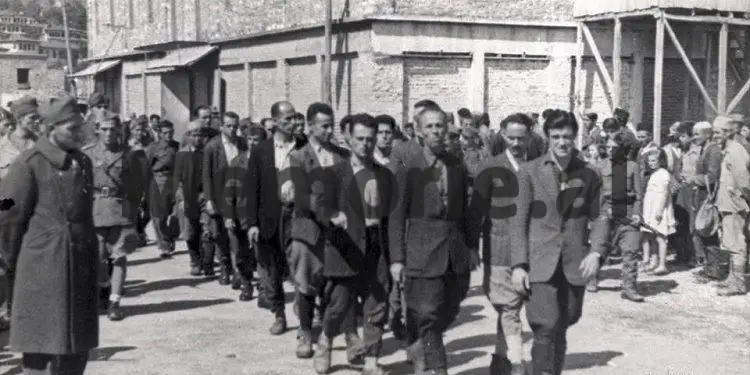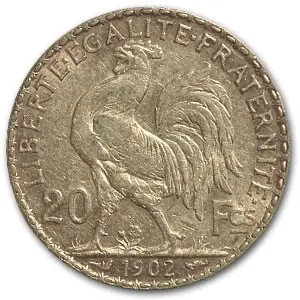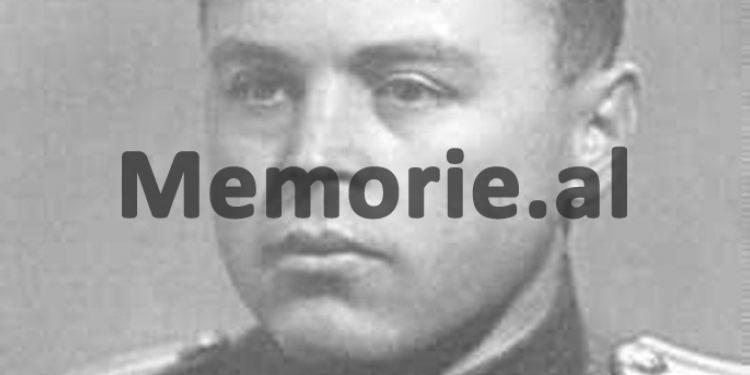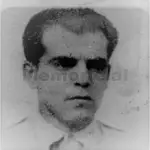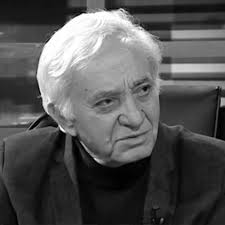From Agim Musta
The ninth part
Memorie.al / On the fourth anniversary of the passing away of the well-known historian, researcher, writer and publicist Agim Musta, (July 24, 2019), former political prisoner, his daughters Elizabeta and Suela, gave him the right to exclusivity for the publication, by the online media Memorie.al, of one of the author’s most prominent publications, such as the ‘Black Book of Albanian Communism’. This work contains numerous data, evidence, facts, statistics and arguments unknown to the general public, on communist crimes and terror in Albania, especially against intellectuals, in the period 1945-1991. The publication for the first time of parts of this book is also the realization of one of the bequests of the historian Agim Musta, who, from the beginning of 1991 until he passed away, for nearly three decades was engaged with all his powers, working to raise collective memory, through book publications and publications in the daily press. All that voluminous work of Mr. Agim Musta, concretized in several books, is a contribution of great value to the disclosure of the crimes of the communist regime of Enver Hoxha and his successor, Ramiz Alia. A good part of the publications of Mr. Agim Musta, is also translated into English. Thanking the two daughters of the late Musta, who chose Memorie.al, to commemorate their father, from today we are starting the publication, part by part, of the “Black Book of Albanian Communism”.
Continues from last issue
-Political trials of the Albanian communist regime-
(1945-1991)
In the summer of 1949, the Greek army, aided by the Anglo-American air force, began a massive operation to finally defeat the Greek communist forces, mainly concentrated on Mount Gramozi in Vici, and Kajmakçallan. The Albanian communist government, in cooperation with the Greek EAM-ists, had opened tunnels and built warehouses to supply the EAM-ists in the sector of Bozhigrad, Trestenik and Gramoz. All the weapons and materials that came from the eastern communist camp were introduced into the interior of the Greek land through those tunnels.
Of course, the Greek Intelligence bodies had detailed information about the place where they were located and the functions performed by the bases located in the Albanian territory. The command of the Greek operation asked the state to cut off all aid to the Greek communists, otherwise they would face a strike by the Greek army. Faced with such a situation, which could bring unforeseen risks, the dictator Hoxha asked for help from Moscow to face a Greek aggression. The Soviet government, which was well aware of the plans of the Greek army, calmed down the dictator, telling him that the provocations of the Greek army were not aimed at overthrowing the government of Enver Hoxha, therefore they had to be faced by the Albanian army. Such a thing was also affirmed by the Soviet advisers, near the General Staff of the army.
“We will help you but not militarily.” This was the statement of the Soviet adviser to the Albanian Ministry of Defense. This declaration brought confusion among the members of the Albanian staff and General Hamit Keçi openly declared that; the Albanian army was not able to stop the Greek attack for even one day, not 10 days as Enver Hoxha had stated. Hamit Keçi was arrested the same day and sentenced as an “enemy of the people” for his defeatist expressions. The units of the Greek army attacked on August 2, 1949 and entered the sector of Bozhigrad, after a weak resistance of the Albanian army.
In the following days, over 6,000 Albanian army personnel were deployed in the area of Korça, to stop a Greek offensive in the interior of the Albanian territory. The Greeks, after destroying the tunnels and supply points for the Greek communist forces, retreated from the Bozhigrad sector, into the interior of their territory.
On August 12, Greek forces again entered the Albanian territory, in the area of Bilishti, to destroy the supply centers of the EAM-ists, which were located near the village of Trestenik. Regarding the fighting that took place in the first two weeks of August 1949, in the area of Korça, General Hulsi Spahiu, my former comrade in prison in Burrel, told me: “The Albanian army in the area of Korça was commanded by semi-illiterate officers. It was not worse equipped, both in weapons, and in clothing and food. The army completely lacked the experience of frontal warfare. From the beginning of the Greek operations, small units and especially the effectives of the border points, remained isolated, without bread and ammunition, this forced several dozen soldiers to desert and seeks political asylum in the Greek state.
The biggest mistake was made by our artillery, located in the village of Pojan in Korça. For a few minutes, it mistakenly bombed the Albanian army in the field of Devolli, causing over 50 killed and many wounded. When the provocations of the Greek army ended after their objectives had been met, Enver Hoxha, dressed in the major uniform of the colonel-general, accompanied by a group of ministers and officers, visited the military hospital of Tirana, to decorate the wounded soldiers in the “provocations” Greek.
There, Enver Hoxha gave a short speech, boasting about the “brilliant victory” of the Albanian army against the Greek monarcho-fascists. As always, Enver Hoxha presented defeats as victories and the poor people applauded them. In the autumn of 1949, about 40 thousand Greek EAM-ists, defeated by the government forces, left the Greek land and entered the Albanian territory. Disappointed, crushed morally and physically, they were disarmed in Përrenjas of Librazhd, before a tripartite commission, composed of major Soviet officers, Albanians and Greek EAM-ists, headed by the former deputy prime minister and the Minister of Internal Affairs of Albania, Mehmet Shehu.
They temporarily took refuge in Albania and in December of the same year, they boarded Soviet ships and left Durrës for the Soviet Union, Romania and other countries of the Eastern Communist Bloc. The Albanian intervention in the internal affairs of the Greek state caused incalculable economic damage to the Albanian people and many human lives, which were given on account of communist internationalism. The Albanian government of that time bears responsibility for the intervention in the Greek civil war and for the consequences caused to Greek citizens as a result of this intervention.
Terror and violence for the robbery of gold and jewels
It was the end of 1946. War tax commissions, set up in every district center, worked late into the night. Merchants, after extorting their goods and paper notes, were asked to hand over gold, jewelry with diamonds, diamonds, opals and other precious stones. The State Security Sections were tasked with collecting the gold and jewelry. The tax commissions, composed mostly of devout communists, drew up lists of the names of merchants and wealthy families, determining by guesswork the amount of gold and jewelry that x or y person might have. That was their job. For others… the “friends” of State Security thought. According to the list, traders were called to the Security Sections, usually at night, and asked to hand over silver, gold and jewels inherited over the years.
The request for surrender was made in the name of the Party and the people “for the needs of the people”. Some merchants, who had helped the communists during the war, handed over a small part of the gold “voluntarily”, at the first call, lying to them that they would throw it into the river without getting wet. Others, who really had neither good nor jewels as required, swore by Christ and Muhammad, with tears in their eyes, that they had spent everything to pay the exorbitant taxes and had nothing left metal in their pockets. There was also a brave, headstrong person like Sul Domi, from Elbasan, who had hit the security guards in the face, saying: “I will not hand over the gold. The earth has given it to me and the earth will eat it”!
After his words, no torture remained without being used on the 70-year-old Sul Dom, until he died at the hands of the red executioners. Sul Dom’s jewelry is still sought after in the orchards and olive groves of Elbasan. The order from the Political Bureau, for the Security agencies, was categorical: “Use all violence and torture, for the collection of gold and jewels, do not shake your hand before the bloodthirsty bourgeois and beylers.” And the fury crackled non-stop and the torture continued without interruption in the 35 sections of the State Security. The tins of gold, buried during distant years, were shot from the gardens. They took out from the walls and foundations of the houses, the gold jars placed there by the grandparents and great-grandparents, who did not remember when they had passed away.
Gold rings and earrings with precious stones were removed from the fingers of brides, from the ears of old women. The Albanians had never suffered such a tragedy. There wasn’t a day when chests of gold and jewels weren’t deposited in the treasury of the Albanian Bank. The Director of the Treasury, Sali Budua, “complained” that he was often woken up at night to deposit the gold. Gold and precious stones flowed like a river in the basements of the State Bank, Dudaje of Gjirokastra, 80 kg were taken from them with fried iron gold bars, Ali Hashos from Gjirokastra, they had taken 10,000 gold sterling.
Rakua of Korça, hanging from the noose in the cells of the Security, showed the place where he had buried 30,000 napoleons of gold. 160,000 gold coins and 2 safes with jewels were taken from the Customs of Durrës, Vangjel Manushi from Berat, “voluntarily” handed over 20,000 gold coins and a bag of diamonds. Rarely was there any self-sacrifice, like Mitat Ciu in Tirana, who hanged himself in the dungeon, so as not to show the gold and valuables. They say that money hurts like the soul, especially when you didn’t inherit it, but you put it in with hard work and sweat.
From Sami Vrioni in Fier, they took a chest of jewels inherited from five generations and as a reward, caused him to die by torture. Major of the State Security, Pandeli Përmeti, who was on duty in Shkodra at that terrifying time, told me: “The city of Shkodra was targeted by the Ministry of Internal Affairs, as the place where more gold would be collected. I was I was sent to Shkodër by the Ministry of the Interior, to supervise the gold collection operation. Although more than half a century has passed, I cannot get rid of those horrible scenes that take place every hour in the cells of the Security Sections. of Shkodra. The operation was led by Zoi Themeli, Petro Bollati and Anesti Kopali. Merchants and rich people of all ages were mercilessly hit with burning bridges and iron rods fried in fire, in every part of the body.”
“Oh gold, oh soul”! This was the slogan that was used. Many of those poor people had both their gold and their lives taken from them. Some of those who survived ended up in prisons and internment camps. “Among the tens of thousands of gold coins, which were taken from the rich Shkodran merchant, Man Tepelia,” says Major Pandeli Permeti, “we also found a coin produced during the time of Alexander the Great of Macedonia.” The primitiveness of the work, the figure of Alexander and the letters of the Greek alphabet stood out. We put this rare gold coin in a special envelope and above it, we marked the Greek letters that were engraved on the coin. When we brought the gold of Tepelia to the state treasury in Tirana, Sali Budua, his eyes widened when he saw the coin with the image of Alexander the Great and he ordered us to give it to Comrade Enver as a gift, as it had historical value and the friend The Commander-in-Chief was very passionate about history.
Together with Anesti Kopalin, we went to friend Enver’s house. He received us in his library, very kindly. For sure, Sali Budua had called Enver Hoxha about the fish we were taking to him. At the beginning of the conversation, friend Enver asked us how the gold collection campaign was going. What percentage was the planned plan realized? Did the ‘leeches’ that had sucked the blood of the people resist any resistance for not handing over the gold? And other questions of this type. After we reported to Comrade Enver, that everything went smoothly and there was no problem, we informed him about the gold coin of the time of Alexander the Great.
Friend Enver’s face shone with joy and he thanked us with many flattering words for the precious gift we gave him. After a few years, I happened to meet a gold and jewelry specialist. I told him about the gold coin of the time of Alexander the Great, not telling him to whom we had taken it and to whom we had given it. He listened to me attentively and his look expressed surprise. At the end of the conversation he told me: Such a coin has a unique numismatic value rather than a historical one. Today, it costs millions of dollars. Where that gold coin and many others ended up, except for Nexhmije Hoxha, no one can know.”
The question naturally arises: Where did all that gold and all that jewelry, accumulated by Albanians generation after generation, over the centuries go? The Albanian communist state has never denied the abduction of gold and jewels, but has falsified the amount poured into the state treasury, presenting it several times much smaller than what was actually poured. Not only the party’s press, but also literature and cinematography were involved in the looting of gold from the Communist Lubia at that time. The expression, which is still used to this day: “Dig Tare, dig because you’re going to find a dead dog”, is taken from a film that deals with the forced robbery of Albanians’ goods and money by the communist dictatorship.
In the magazine “In the service of the people”, organ of the Ministry of Internal Affairs, in August 1984, Nuri Mehmeti claims that in Albania, from the state of the dictatorship of the proletariat, 43,816,682 gold coins have been collected, together with gold plates and bars, reach a weight of 320 tons, which would need 100 trucks to transport it! This does not include the value of stolen jewels, which is denied, about 2 billion US dollars, in today’s value. Here’s what Nuri Mehmeti writes: “In January 1945, the law of extraordinary tax on war profits came out. This law particularly hit that part of the bourgeoisie that had accumulated great wealth. In most cases, the taxed elements did not accept to pay the specified amount, under the pretext that they did not have it, while some tried to take the gold and other valuables out of the country.
Difficult actions (meaning torture, A.M.) had to be done by the bodies of Internal Affairs and the police 137, to discover the gold that the capitalists and traders had hidden. The experience was little, but the help of the people was great. The workers also helped the specialists, who had participated in the construction of warehouses, vaults and who had done the hiding in unknown places. They helped those who had served as slaves and argots, next to the rotten capitalists. Pots of gold were found, not only in deep underground concreting and in the walls of houses, but also under the roots of trees and at the bottom of drinking water wells, such as in Tirana, Durrës, etc. It is said that a good part of the gold was extorted by “sister” Yugoslavia and the glorious Soviet Union. But what happened to the rest?!
At the beginning of the 90s, when pluralism was established in Albania, some journalists emerged from the mud of the Labor Party, like poisoned mushrooms, promising with excitement that gold would be found, that Albania would prosper, and happy who would to live, to enjoy. As if by magic, the journalists immediately shut up and the issue of gold turned into a taboo. In 2000, it came to light that a part of the gold was taken from the Treasury of the National Bank and deposited in the area of Kërraba, in some caves and tunnels, like those of Ali Baba in Algeria. It was said that some villagers in the area had stolen the treasure and had loaded some donkeys with gold and taken it out to the bazaars to sell. How shameless and cunning were the thieves of the people, who turned the real into a legend, so that the knot of Albanian gold would never be solved…?! Memorie.al
The next issue follows




